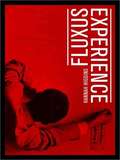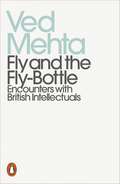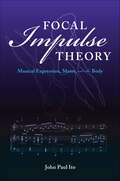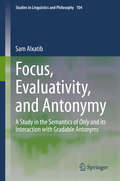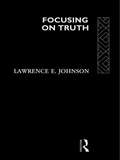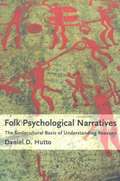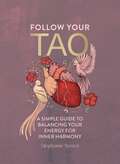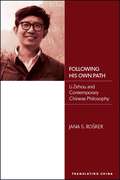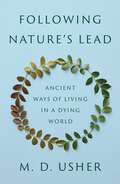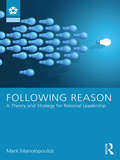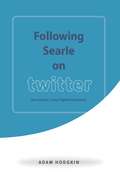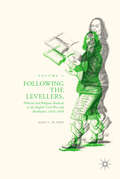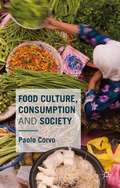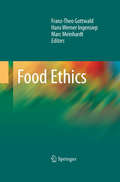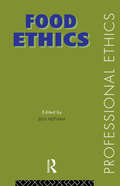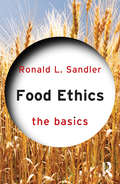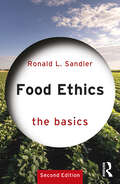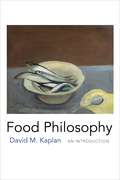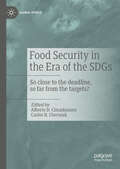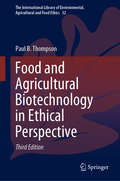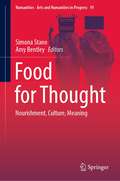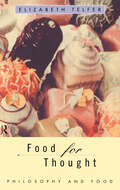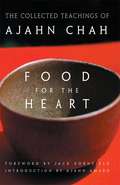- Table View
- List View
Fluxus Experience
by Hannah HigginsHannah Higgins explores the influential art movement Fluxus. Daring, disparate, contentious--Fluxus artists worked with minimal and prosaic materials now familiar in post-World War II art. Higgins describes the experience of Fluxus for viewers, even experiences resembling sensory assaults, as affirming transactions between self and world.
Fly and the Fly-Bottle (Penguin Modern Classics)
by Ved MehtaFly and the Fly Bottle is perhaps Ved Mehta's masterpiece: a collection of his brilliantly revealing conversations with some of the twentieth century's most important philosophers. Engaging with such heavyweights as Isaiah Berlin, Gilbert Ryle, and Elizabeth Anscombe, Mehta is not only able to shed light on the personalities involved in shaping modern philosophy, as well as on the particularities of that philosophic thought, but also to minutely examine the surrounding atmosphere of mid-century British life.
Focal Impulse Theory: Musical Expression, Meter, and the Body (Musical Meaning and Interpretation)
by John Paul ItoMusic is surrounded by movement, from the arching back of the guitarist to the violinist swaying with each bow stroke. To John Paul Ito, these actions are not just a visual display; rather, they reveal what it really means for musicians to move with the beat, organizing the flow of notes from beat to beat and shaping the sound produced. By developing "focal impulse theory," Ito shows how a performer's choices of how to move with the meter can transform the music's expressive contours. Change the dance of the performer's body, and you change the dance of the notes. As Focal Impulse Theory deftly illustrates, bodily movements carry musical meaning and, in a very real sense, are meaning.
Focus, Evaluativity, and Antonymy: A Study in the Semantics of Only and its Interaction with Gradable Antonyms (Studies in Linguistics and Philosophy #104)
by Sam AlxatibThis book uncovers properties of focus association with 'only' by examining the interaction between the particle and bare (or “evaluative”) gradable terms. Its empirical building blocks are paradigms involving upward-scalar terms like 'few' and 'rarely', and their downward-scalar antonyms 'many' and 'frequently', an area that has not been studied previously in the literature. The empirical claim is that associations of the former type give rise to unexpected readings, and the proposed theoretical explanation draws on the properties of the latter type of association. In presenting the details, the book deconstructs the so-called scalar presupposition of 'only' and derives it from constraints against its vacuous use. This view is then combined with a semantics of the evaluative adjectives 'many' and 'few' to explain why the unavailable (but expected) meanings of the given constructions are unavailable. The attested (but unexpected) readings of 'only+few/rarely' associations are derived from independently motivated LFs in which the degree expressions are existentially closed. Finally, the book provides new findings, based on the core proposal, about 'only if' constructions, and about the interaction between 'only' and other upward-scalar modified numerals (comparatives, and 'at most'). The book thus provides new data and a new theoretical view of the semantic properties of 'only', and connects it to the semantics of gradable expressions.
Focusing on Truth
by Lawrence E. JohnsonThis book offers an introductory account of the central theories of truth. A wide range of theories, from those of correspondence and coherence to Tarski's semantic conception of truth are presented and assessed in order to profit from that which is of value in them. The authot proposes a new account which it is asserted is adequate to meet the legitimate demands made on the theory of truth.
Folk Psychological Narratives: The Sociocultural Basis of Understanding Reasons
by Daniel D. HuttoThis book provides an elaborate defence of the claim that our capacity to understand intentional actions in terms of reasons has a decidedly sociocultural basis. It advances and explicates the hypothesis that children only come by the requisite framework for such understanding and master its practical application by being exposed to and engaging in a distinctive kind of narrative practice.
Follow Your Tao: A Simple Guide to Balancing Your Energy for Inner Harmony
by Stephanie NoscoIn Follow Your Tao, the teachings of Taoism and the healing system of TCM describe the interconnection between your health and everything you consume physically, mentally and spiritually.Through a clear pathway that links key emotions and feelings to certain organs - known as wu shen or the five spirits, the book describes the five major organ groups or 'spirits' of the body, how to identify when they are out of balance and ways to rebalance them. A chapter is devoted to each 'spirit', which begins with a narrative story that serves as a metaphor or touchstone for the subject. A list of the organs' associations and attributes as well as a description of the organ's physical, emotional and spiritual properties and functions follows. Each chapter ends with a problems and solutions section, with step-by-step 'soul work' exercises to bring you back into balance.ContentsIntroduction 1: Heart & Small Intestine (The Shen) - Setting Boundaries/Decision Making2: Liver & Gallbladder (The Hun) - Creating Your Dreams/Planning3: Spleen & Stomach (The Yi) - Setting Intentions/Moving Forward4: Lungs & Large Intestine (The Po) - Survival and Determination5: Bladder & Kidneys (The Zhi) - Trust and FaithBibliographyIndexAcknowledgements
Follow Your Tao: A Simple Guide to Balancing Your Energy for Inner Harmony
by Stephanie NoscoIn Follow Your Tao, the teachings of Taoism and the healing system of TCM describe the interconnection between your health and everything you consume physically, mentally and spiritually.Through a clear pathway that links key emotions and feelings to certain organs - known as wu shen or the five spirits, the book describes the five major organ groups or 'spirits' of the body, how to identify when they are out of balance and ways to rebalance them. A chapter is devoted to each 'spirit', which begins with a narrative story that serves as a metaphor or touchstone for the subject. A list of the organs' associations and attributes as well as a description of the organ's physical, emotional and spiritual properties and functions follows. Each chapter ends with a problems and solutions section, with step-by-step 'soul work' exercises to bring you back into balance.ContentsIntroduction 1: Heart & Small Intestine (The Shen) - Setting Boundaries/Decision Making2: Liver & Gallbladder (The Hun) - Creating Your Dreams/Planning3: Spleen & Stomach (The Yi) - Setting Intentions/Moving Forward4: Lungs & Large Intestine (The Po) - Survival and Determination5: Bladder & Kidneys (The Zhi) - Trust and FaithBibliographyIndexAcknowledgements
Following His Own Path: Li Zehou and Contemporary Chinese Philosophy (SUNY series, Translating China)
by Jana S. RoškerIn this book, Jana S. Rošker offers the first comprehensive overview and exegesis of the work of Li Zehou, who is one of the most significant and influential Chinese philosophers of our time. Rošker shows us how Li's complex system of thought seeks to revive various Chinese traditions, and at the same time attempts to harmonize or reconcile this cultural heritage with the demands of the dominant economic, political, and axiological structures of our globalized world. Variously characterized as "neo-traditional," "neo-Kantian," "post-Marxist," "Marxist-Confucian," "pragmatist," "instrumentalist," "romantic," and more, Li's work was central to the period known as the Chinese Enlightenment in the 1980s and has helped modify and transform antiquated patterns of Chinese intellectual discourse. He is one of the rare Chinese thinkers whose work has not only had a deep and lasting impact on Chinese intellectuals, but has acquired a broad readership outside of China as well. Seen from a broader intercultural perspective, Li's unique and imaginative approach to a wide range of basic theoretical problems has created new styles of intellectual investigation, while reminding us of our belonging to a common humanity, regardless of differences in our individual cultures, languages, preferences, and traditions.
Following Nature’s Lead: Ancient Ways of Living in a Dying World
by M. D. UsherIn the spirit of E. F. Schumacher&’s Small Is Beautiful, a dazzling and revelatory exploration of what ancient ideas and ways of living can teach us about creating a more sustainable worldHow should we think and live in a world facing environmental catastrophe? In this urgent, original, and wide-ranging book, classicist and farmer M. D. Usher brings together ancient, indigenous, and modern ideas about how to live in this world and describes how we might begin to reconnect with Nature and heal our damaged planet and lives. The ancients hewed close to Nature, the source of their survival, in ways that most of us can scarcely conceive of today, and ancient philosophy often argues that humans should follow Nature&’s lead. Usher makes the case that Nature&’s resilience can serve as a model for our own responses to climate trauma and all the other harms caused by modern lifestyles.Drawing on philosophy, science, economics, art, literature, history, and religion, Following Nature&’s Lead is both an indictment of human overreach and a celebration of human ingenuity and the adaptability of Nature. Here, Plato meets German biologist Jakob von Uexküll, Lucretius illuminates King Lear, and Diogenes the Cynic crosses swords with Henry Thoreau.Filled with vital and inspiring insights, Following Nature&’s Lead shows how the ancients can help teach us to live in accordance with Nature—and why it&’s essential for human survival that we learn to do so without delay.
Following Reason: A Theory and Strategy for Rational Leadership (Leadership: Research and Practice)
by Mark ManolopoulosThroughout history, humanity has regularly followed anti-rational figures and forces: demagogic rulers, perverted deities, exploitative economic systems, and so on. Such leadership and followership have wrought all kinds of oppression and conflict. What if this pattern could be altered? What if society were led by Reason instead? Prompted by Cicero’s exhortation to "follow reason as leader as though it were a god", Following Reason: A Theory and Strategy for Rational Leadership explores this intriguing and potentially transformative possibility. Manolopoulos uniquely blends leadership psychology with a deep understanding of philosophical reasoning theory to show how leaders can bravely reimagine and reconstruct society. The book retraces leadership mis-steps in history, and proposes a more "logicentric" theory of leadership, built on compelling philosophical axioms and arguments. Following Reason emphasizes the weight of philosophy and cognition in leadership, and advocates for a diverse network that can create, uphold, and implement a blueprint for a better global society. This wide-ranging and timely book is ideal for leadership, management, and philosophy students at undergraduate and graduate levels.
Following Searle on Twitter: How Words Create Digital Institutions
by Adam HodgkinTwitter allows us to build communities, track celebrities, raise our social profile, and promote a personal brand. Adam Hodgkin thinks Twitter is much more than a mere social media tool—it is a terrain ripe for a conceptual and theoretical analysis of our use of digital language. In Following Searle on Twitter, Hodgkin takes John Searle’s theory of speech acts as Status Function Declarations (SFDs)—speech acts that fulfill their meaning by saying the right words in the right context—as a probe for understanding Twitter’s institutional structure and the still-developing toolset that it provides for its members. He argues that Twitter is an institution built, constituted, and evolving through the use of SFDs. Searle’s speech act theories provide a framework for illuminating how Twitter membership arises, how users of Twitter relate to each other by following, and how increasingly complex content is conveyed with tweets. Using this framework, Hodgkin places language, action, intention, and responsibility at the core of the digital culture and the digital institutions that we are constructing. Combining theoretical perspective with a down-to-earth exposition of present-day digital institutions, Following Searle on Twitter explores how all of our interactions with these emerging institutions are deeply rooted in language, and are the true foundation of social media and contemporary institutions.
Following the Levellers, Volume One: Political and Religious Radicals in the English Civil War and Revolution, 1645–1649
by Gary S. De KreyThis book reinterprets the Leveller authorships of John Lilburne, Richard Overton and William Walwyn, and foregrounds the role of ordinary people in petitioning and protest during an era of civil war and revolution. The Levellers sought to restructure the state in 1647-49 around popular consent and liberty for conscience, especially in their Agreement of the People. Their following was not a ‘movement’ but largely a political response of the sects that had emerged in London’s rapidly growing peripheral neighbourhoods and in other localities in the 1640s. This study argues that the Levellers did not emerge as a separate political faction before October 1647, that they did not succeed in establishing extensive political organisation, and that the troop revolt of spring 1649 was not really a Leveller phenomenon. Addressing the contested interpretations of the Levellers throughout, this book also introduces Leveller history to non-specialist readers.
Folter in Diktaturen und Demokratien: Eine Untersuchung von Funktions- und Wirkungsweise von Folter in politischen Systemen
by Linda WimmerDie vorliegende Arbeit analysiert die mögliche Funktions- und Wirkungsweise von Folter in politischen Systemen und geht vor dem Hintergrund des de facto Verbots der Folter im Völkerrecht der Frage nach, welchen Zweck die Folter im 21. Jahrhundert in Demokratien und Diktaturen eigentlich einnimmt. Die Autorin arbeitet die verschiedensten interdisziplinären Aspekte der Folter heraus. So wird die Gundlage für das theoretische Konstrukt eines Funktions- und Wirkungskataloges gebildet. Nach einem Überblick über die Folter im Laufe der Jahrhunderten und möglicher Sonderformen der Folter wird dieser Katalog anhand von sechs Länderbeispielen analysiert. Drei der Beispiele fallen dabei auf das demokratische Sprektrum der politischen Systeme wie die USA, Spanien und Israel. Die anderen drei nehmen Diktaturen des 21. Jahrhundert in den Fokus (China, Irak und Nigeria).
Food Ethics
by Franz-Theo Gottwald Marc Meinhardt Hans Werner IngensiepIn this first decade of the 21st century, more than 854 million people in the world are starving, while industrial nations are debating about obesity, generating energy from food plants, and a myriad of other topics many African and south Asian nations could only fathom. In this great discord, there have arisen many interdisciplinary discussions about problems in the field of applied Ethics, with regards to food, that are crossing a considerably wide spectrum of disciplines, such as: obesity, traceability, agro-food biotechnology, dairy industry, transgenic plants, novel food, bio fuels, world-trade system, etc. This book presents international discussions and information concerning food ethics in its current state. It presents a variety of important aspects in the field of food ethics with respect to positions, instruments and applications of issues surrounding nutrition. A great deal of the book will concern itself with discussing different ethical positions and problems of current interests, as explained by experts of the "food-ethics-community". The articles will focus on the reality of global food problems through two main issues: current questions of nutrition in the specific contexts of field and experience, ethical tools, ideas and suggestions concerning long-term steps for solutions. The appendix presents a collection of current declarations and political statements - visions, proposals and goals in a worth living world in general and concerning specific problems - water, healthy food, the human right to food, sustainability and food sovereignty.
Food Ethics (Professional Ethics)
by Ben MephamNone of us can avoid being interested in food. Our very existence depends on the supply of safe, nutritious foods. It is then hardly surprising that food has become the focus of a wide range of ethical concerns: Is the food we buy safe? Is it produced by means which respect the welfare of animals and sustain the land? Are modern biotechnologies employed in food production immoral? This book addresses such issues by applying ethical principles to many areas of current concern. The contributors provide original and thought-provoking treatments of a number of highly topical issues - from global hunger and its ethical implications to the cultural habits affecting consumption. This interdisciplinary study will prove to be essential reading for all those concerned with food, as professionals, students or consumers.
Food Ethics: The Basics (The Basics)
by Ronald L. SandlerFood Ethics: The Basics is a concise yet comprehensive introduction to the ethical dimensions of the production and consumption of food. It offers an impartial exploration of the most prominent ethical questions relating to food and agriculture including: • Should we eat animals? • Are locally produced foods ethically superior to globally sourced foods? • Do people in affluent nations have a responsibility to help reduce global hunger? • Should we embrace bioengineered foods? • What should be the role of government in promoting food safety and public health? Using extensive data and real world examples, as well as providing suggestions for further reading, Food Ethics: The Basics is an ideal introduction for anyone interested in the ethics of food.
Food Ethics: The Basics (The Basics)
by Ronald L. SandlerFood Ethics: The Basics is a concise yet comprehensive introduction to the ethical dimensions of the production and consumption of food. It offers an impartial exploration of the most prominent ethical questions relating to food and agriculture, including: Should we eat animals? Are locally produced foods ethically superior to globally sourced foods? Do people in affluent nations have a responsibility to help reduce global hunger? Should we embrace bioengineered foods? What should be the role of government in promoting food safety and public health? This second edition has been revised and updated throughout, not only to take in the latest empirical and policy information, but also to address the impact of major issues such as the COVID-19 pandemic, Russia’s invasion of Ukraine, AI and machine learning, and the rapid growth of the "gig economy." Using extensive data and real-world examples, as well as providing suggestions for further reading, Food Ethics: The Basics is an ideal introduction for anyone interested in the ethics of food.
Food Philosophy: An Introduction (California Studies In Food And Culture Ser. #39)
by David M. KaplanFood is a challenging subject. There is little consensus about how and what we should produce and consume. It is not even clear what food is or whether people have similar experiences of it. On one hand, food is recognized as a basic need, if not a basic right. On the other hand, it is hard to generalize about it given the wide range of practices and cuisines, and the even wider range of tastes.This book is an introduction to the philosophical dimensions of food. David M. Kaplan examines the nature and meaning of food, how we experience it, the social role it plays, its moral and political dimensions, and how we judge it to be delicious or awful. He shows how the different branches of philosophy contribute to a broader understanding of food: what food is (metaphysics), how we experience food (epistemology), what taste in food is (aesthetics), how we should make and eat food (ethics), how governments should regulate food (political philosophy), and why food matters to us (existentialism). Kaplan embarks on a series of philosophical investigations, considering topics such as culinary identity and authenticity, tasting and food criticism, appetite and disgust, meat eating and techno-foods, and consumerism and conformity. He emphasizes how different narratives help us navigate the complex world of food and reminds us we all have responsibilities to ourselves, to others, and to animals. An original treatment of a timely subject, Food Philosophy is suitable for undergraduates while making a significant contribution to scholarly debates.
Food Security in the Era of the SDGs: So close to the deadline, so far from the targets? (Global Ethics)
by Alberto D. Cimadamore Carlos B. CherniakThis book addresses the challenges to achieve food security, which can arguably be one of the axis of any transformational solution to the structural production and reproduction of hunger, malnutrition, and poverty. According to the picture depicted in the book, access to sufficient and safe food is not guaranteed for approximately 2.4 billion people, with women and children in rural areas being the most significantly affected. Particularly, the situation concerning children has set off all the alarms. Based on the data offered in the different chapters, the authors estimate that would be very difficult -if not impossible- to achieve the most important global objectives that the international community has committed to achieving by 2030: ending poverty, hunger, and food insecurity. This way, the most ambitious and well-intended development initiative the international community was able to put together in the history of humankind (the Agenda 2030) is derailing. Urgent expansion in the supply of the nutritious foods that constitute a healthy diet and a shift in consumption patterns are required -among other things- to effectively address SDGs targets. The book presents and discusses contributions of authors who have been thinking and facing those challenges in the academia and decision-making spheres. It is also a relevant contribution to rethinking the public policies of Latin American and Caribbean (LAC) countries, as well as the technical cooperation and financial assistance schemes for the region. The rethinking exercise sketched here places LAC both as a critical scenario and as a laboratory for envisioning innovative solutions that have the potential to not only transform the regional reality but also to be replicated in other regions with the proper adaptation to different contexts.
Food and Agricultural Biotechnology in Ethical Perspective (The International Library of Environmental, Agricultural and Food Ethics #32)
by Paul B. ThompsonThis 3rd edition of Food and Agricultural Biotechnology in Ethical Perspective updates Thompson’s analysis to reflect the next generation of biotechnology, including synthetic biology, gene editing and gene drives. The first two editions of this book, published as Food Biotechnology in Ethical Perspective in 1997 and 2007, were the first comprehensive philosophical studies of genetic engineering applied to food systems. The book is structured with chapter length treatments of risk in four categories: food safety, to animals, to the environment and socio-economic risks. These chapters are preceded by two chapters providing orientation to the uses of gene technology in food and agriculture, and to the goals, methods and background assumptions of technological ethics. There is also a chapter covering all four types of risk as applied to the first US technology, recombinant bovine somatotropin. The last four chapters take up 1) intellectual property debates, 2) religious, metaphysical and “intrinsic” objections to biotechnology, 3) issues in risk and trust and 4) a review of ethical issues in synthetic biology, gene editing and gene drives, the three key technologies that have emerged since the book was last revised.
Food for Thought: Nourishment, Culture, Meaning (Numanities - Arts and Humanities in Progress #19)
by Amy Bentley Simona StanoThis volume offers new insights into food and culture. Food habits, preferences, and taboos are partially regulated by ecological and material factors - in other words, all food systems are structured and given particular functioning mechanisms by specific societies and cultures, either according to totemic, sacrificial, hygienic-rationalist, aesthetic, or other symbolic logics. This provides much “food for thought”. The famous expression has never been so appropriate: not only do cultures develop unique practices for the production, treatment and consumption of food, but such practices inevitably end up affecting food-related aspects and spheres that are generally perceived as objectively and materially defined. This book explores such dynamics drawing on various theoretical approaches and analytical methodologies, thus enhancing the cultural reflection on food and, at the same time, helping us see how the study of food itself can help us understand better what we call “culture”. It will be of interest to anthropologists, philosophers, semioticians and historians of food.
Food for Thought: Philosophy and Food
by Elizabeth TelferLooking at the philosophical issues raised by food this short and accessible book questions the place food should have in our individual lives. It shows how traditional philosophy and its classic texts can illuminate an everyday subject.
Food for the Heart
by Jack Kornfield Ajahn Amaro Ajahn ChahRenowned for the beauty and simplicity of his teachings, Ajahn Chah was Thailand's best-known meditation teacher. His charisma and wisdom influenced many American and European seekers, and helped shape the American Vipassana community. This collection brings together for the first time Ajahn Chah's most powerful teachings, including those on meditation, liberation from suffering, calming the mind, enlightenment and the 'living dhamma'. Most of these talks have previously only been available in limited, private editions and the publication of Food for the Heart therefore represents a momentous occasion: the hugely increased accessibility of his words and wisdom. Western teachers such as Ram Dass and Jack Kornfield have extolled Chah's teachings for years and now readers can experience them directly in this book.
